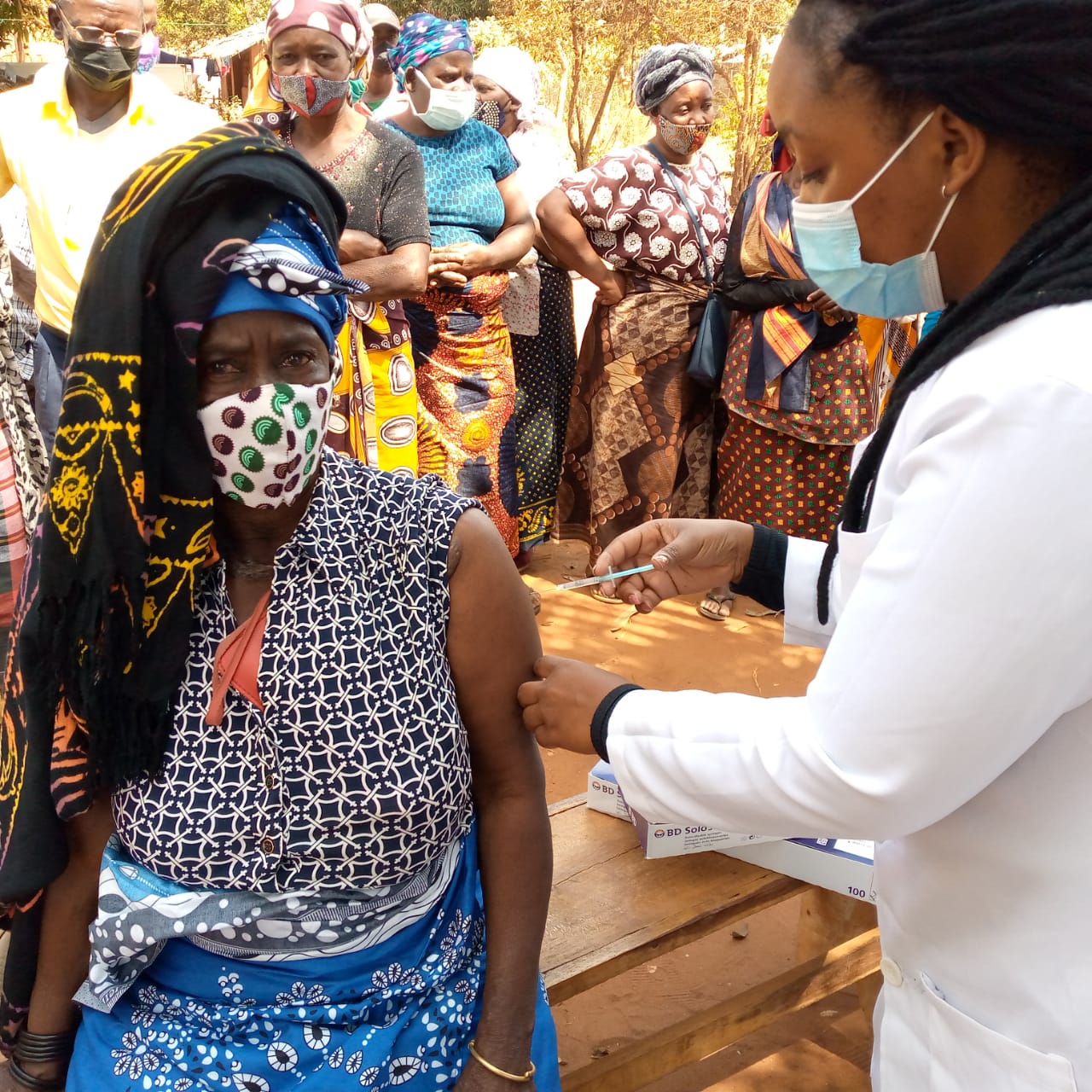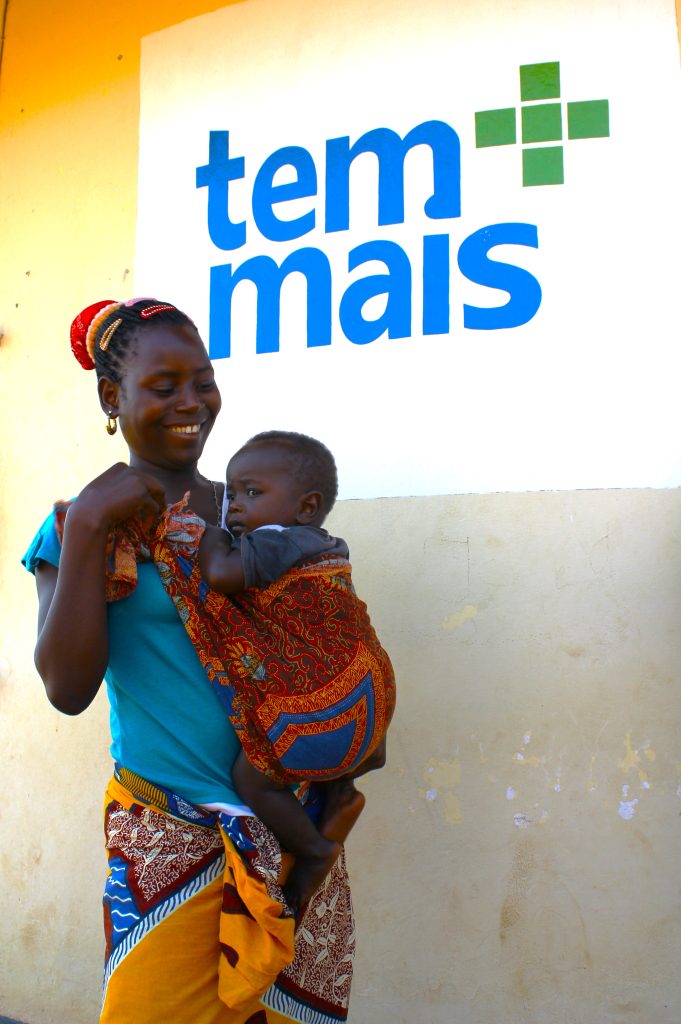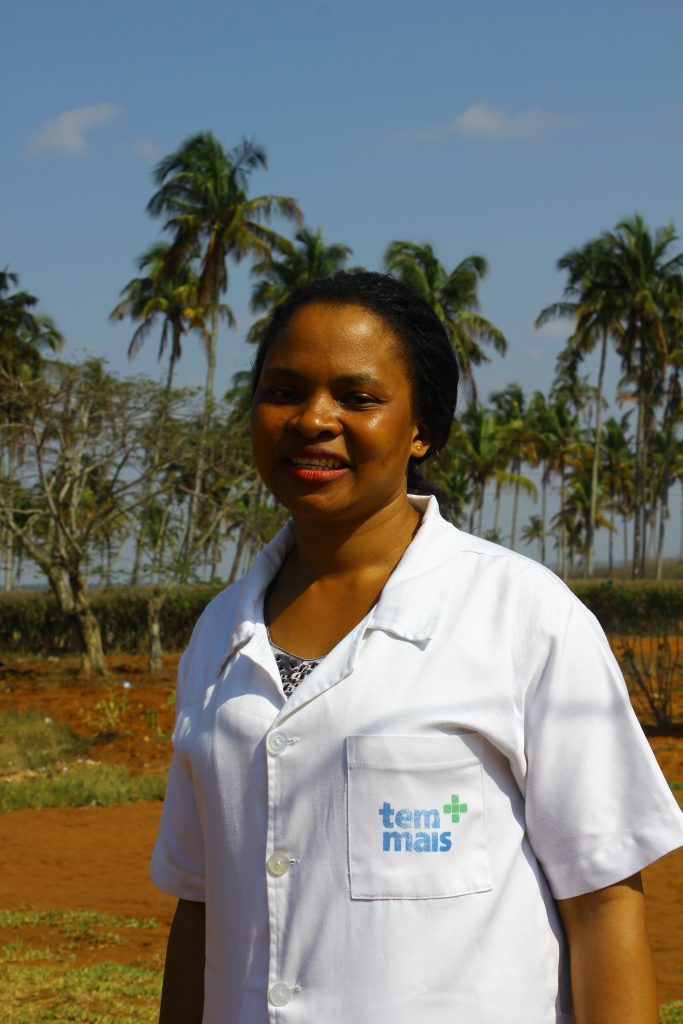Task Sharing with the Private Sector during COVID-19: Lessons from Mozambique
Published on June 25, 2024
By Eva Burke, Rebecca Husband, and Mariela Rodríguez, MOMENTUM Private Healthcare Delivery
When the World Health Organization (WHO) declared COVID-19 a global pandemic in March 2020, family planning (FP) implementers and champions feared a reversal in progress toward ambitious global FP commitments. Initial projections of COVID-19’s impact on access to FP were that there would be 60 million fewer FP users worldwide in 2020.1 Many organizations and implementers, including Population Services International (PSI), quickly adapted programming in the early months of the pandemic to preserve continuity of FP care and access for communities affected by lockdowns. Between 2020-2021, Research for Scalable Solutions (R4S) documented more than 300 program adaptations across various health areas, 168 of which were related to sexual and reproductive health programs in the private sector. In August 2021, MOMENTUM began to examine COVID-19 adaptations to FP private sector service delivery in Mozambique to understand how and whether the adaptation supported local efforts to prevent FP service interruptions.
Mozambique’s COVID-19 Response

In Mozambique, as in many countries, waves of COVID-19 infections led to government lockdowns, including curfews, restricted access to public transportation, shortened opening hours at hospitals and clinics, and limited clinic visits to emergency or urgent care. However, many women in Mozambique are users of short-acting methods of contraception, such as pills and injectables. With limited access to clinics, pharmacies, and other FP service points for re-supply during the pandemic, they were at risk of interruption and discontinuation of their methods. To mitigate this risk, FP programs had to rethink the way that services and products were delivered, including through models that bring services closer to women.
A well-established model to reach women in their communities is community-based distribution (CBD) through community health workers (CHWs), who bring information, services, and supplies to individuals and families in their communities, negating the need to travel to health facilities for care. The use of CBD for contraceptives is considered a proven high impact practice for FP, reaching communities where geographic, social, or other barriers prevent access to FP information or services. Evidence shows that CHWs can safely and effectively provide a wide range of contraceptives, including short-acting methods and injectables.
Prior to the pandemic, public sector CHWs called Agentes Polivalentes Elementares (APEs) conducted CBD of contraceptives. APEs distribute oral contraceptive pills (OCPs) and condoms, and they administer the injectable contraceptive method DMPA-SC, but often face stock shortages.
The PSI Mozambique COVID-19 Adaptation Examined by MOMENTUM
With restrictions of movement and limited accessibility to hospitals and clinics, in May 2020, the Ministry of Health (MoH) authorized other health workers to support CBD during this period. With this authorization, community agents privately funded by PSI, called Community Health Promoters (CHPs), began to support community-based distribution of FP. The CHPs support the Tem+ (meaning ‘have more’) clinic network and nurses, which are managed by PSI and offer reproductive health services. These Tem+ nurses provide additional capacity support to public facilities in four provinces: Gaza, Inhambane, Nampula, and Sofala. Each Tem+ nurse is supported by a group of PSI-managed CHPs who share health information on FP services and products in communities and provide referrals to the Tem+ nurses or public health facilities for contraceptive services.2

Prior to COVID-19, CHPs were only authorized to distribute condoms. With the emergency authorization, the MoH initiated a task sharing approach3 with the private sector that permitted CHPs to provide OCPs and administer DMPA-SC,4 for existing users of these methods. New FP users or switchers were referred to Tem+ or public sector nurses. While all CHPs receive baseline training from PSI on family planning counseling and referrals in the context of informed choice, PSI trained 161 CHPs on additional content, including COVID-19 safety and requirements, provision of OCPs and DMPA-SC, and completion of applicable forms and registers.
The facility-based Tem+ nurses and their public sector counterparts monitored the needs of existing FP users in their communities, and each week they provided each CHP with a list of 15 women to visit at home. During visits, which were often in remote areas (across four provinces), CHPs would discuss method satisfaction; provide re-supply of OCPs, condoms, and DMPA-SC as needed; and refer any users with further questions or with an interest in switching methods to the Tem+ nurses or public facilities.
MOMENTUM’s Analysis: What Worked? What Didn’t?
How successful was the adaptation?
Expanding the range of methods available through task sharing with private CHPs aimed to support continuation of FP services during the pandemic. MOMENTUM analyzed six months of service data from Tem+ nurses’ monthly reports at 18 clinics and conducted interviews with a sample of stakeholders, including private and public health providers, government, and organizational staff.
MOMENTUM found that the adaptation was successful in supporting continued use of OCPs and DMPA-SC for many users. At its peak, nearly 600 DMPA-SC and 200 OCP users were being reached per month through services provided directly by the network of CHPs. The number of users reached each month varied, and this also varied across different provinces.

During COVID-19, key informants reported an increase in demand for FP, due to couples spending more time together during lockdowns, and to migrant workers returning home during this period. This reported demand was reflected in the data; many existing FP users accessed methods from CHPs. Surprisingly, there was also an increase in use of all FP methods provided by Tem+ nurses based at facilities despite the restrictions, with data suggesting there was a 61% increase in DMPA-SC, a 29% increase in implants, a 25% increase in IUDs, a 13% increase in DMPA-IM, and a 10% increase in OCPs. This was in part due to the increase in the number of referrals made by CHPs to Tem+ nurses, with referrals increasing by 59% during the adaptation period.
In addition to supporting FP continuation, interviewees also reported that this adaptation appealed to clients living or working in hard-to-reach areas, such as on or near remote farms where the CHP model reduced the cost and time needed for women to travel to a health facility. One promoter shared, “Most women started taking family planning because the service was close by, and they could go to the farm and receive the service at home without going to the hospital or spending money and time.” Augmenting the existing APE workforce with private promoters was also a positive result noted by a MoH staffer who shared, “My point of view is that the more actors we have, the more we improve and increase access…The approach helps a lot in increasing coverage where access is difficult. And it helps in the continuity of services.”
From these positive findings, MOMENTUM generated several reflections:
- The high numbers of DMPA-SC administered by CHPs during the adaptation period may indicate that FP users see a value-add in accessing this method at or near home even if it is not self-injected and still requires the provider to administer it.
- As anticipated, the analysis reinforced the value of CBD in reaching women who cannot easily—or prefer not to—access health facilities.
- While FP access was assumed to be disrupted on a global scale, the analysis shows there was also an increase in demand for, and provision of, FP in the intervention areas during this time. The expansion of CBD in the private sector helped alleviate this increased demand so that facility-based nurses could focus on users that required their more specific skills.
What were its limitations?
While the CHP adaptation saw positive results, results that were particularly vital during COVID-19, there were limitations that affected the sustainability of the model used in Mozambique.
To succeed in its primary objective of supporting FP use and continuation and to reach as many users as possible regardless of ability to pay, the CHPs did not charge clients for the methods. This meant that program operational costs were not recovered, instead relying on donor funding as longer-term incentives for improved CHP retention and quality were not in place.
Additionally, PSI Mozambique was reliant on the national FP supplies system, requiring PSI to fill the gaps through other means when stock-outs occurred. Despite the adaptation’s relative success during the pandemic period, MOMENTUM views these limitations as restricting the long-term suitability of replicating or scaling this model in other contexts. However, this experience highlights the impact and importance of such donor-funded investments during public health emergencies, which enable rapid application of best practices to provide healthcare to those in need.
Considerations for Future Shocks to FP Programming
Four years after the start of the COVID-19 pandemic, evidence has emerged that the lockdown periods did disrupt contraceptive use overall but may not have had universally disastrous consequences for FP uptake or continuation as feared. A 2021 UNFPA report pointed to smaller and shorter disruptions to FP services, with disruptions concentrated at the peak of global lockdowns. A recent MOMENTUM report also found that COVID-19 did not have a significant or lasting effect on contraceptive sales in three different FP retail pharmacy markets. MOMENTUM’s analysis showed that the task sharing initiative helped mitigate any forecasted discontinuation by supporting OCP and DMPA-SC users to continue their methods in Mozambique. Moreover, the significant increase in referrals for new or longer-acting methods showed that the model also helped meet an increasing demand for contraception in the intervention areas.
In preparing for future shocks, MOMENTUM shares the following considerations for those seeking to strengthen FP programs and services through task sharing of CBD:
- National health planners can consider incorporation of accelerated CBD programming, including task sharing options, during emergency periods. In the context of the Global Health Security Agenda, expanded community-based provision of healthcare—like that seen in this adaptation—can feature as part of preparations against WHO benchmarks to ensure continuity of essential services and to strengthen health emergency prevention, preparedness, response, and resilience.
- In the context of emergencies and global pandemics, weak supply chains become even weaker. As recommended by the Reproductive Health Supplies Coalition, where national systems are susceptible to stock-outs, emergency supplies of FP methods could be built during stable periods with the input of CBD implementers, and health planners should seek to diversify their supply base to reduce dependency risks.
- Even in emergencies, built-in incentives to retain and motivate CHWs are important, and these costs should be built into CBD program budgets ahead of health system shocks. For CHWs delivering FP products and services, any incentives or compensation should align with principles of informed choice.
- Health planners should consider how data will be captured and reported during emergency periods to national management information systems, depending on the partner engaged. Reporting tools such as simplified or digitized registers are more likely to find traction with private sector providers, who often operate outside governmental systems.
MOMENTUM’s analysis illustrates that, by bringing in other stakeholders, being open to task sharing options, and working in partnership with the private sector, CBD can be scaled up quickly to deliver health services, especially during emergency periods.
Footnotes
- Dasgupta A, Kantorová V, Ueffing P. (2020). The Impact of the COVID-19 crisis on meeting needs for family planning: a global scenario by contraceptive methods used. Gates Open Research.
- The Tem+ network of nurses closed in 2022, although some Tem+ nurses continue to support the public sector in other capacities. The CHPs are still operational at time of writing.
- Task sharing is a “safe, effective, and efficient means” to redistribute family planning services by extending or expanding the types of health workers who can deliver the services. High-Impact Practices in Family Planning (HIPs). Task Sharing Family Planning Services to Increase Health Workforce Efficiency and Expand Access: A Strategic Planning Guide. Washington, DC: USAID; 2019 Sep. Available from: https://www.fphighimpactpractices.org/guides/task-sharing-family-planning-services/
- DMPA-SC is an injectable method which can be administered by a provider or self-injected by the user. For the duration of the activity, all DMPA-SC use was administered by a CHP, as this cadre was not authorized to teach users to self-inject.

